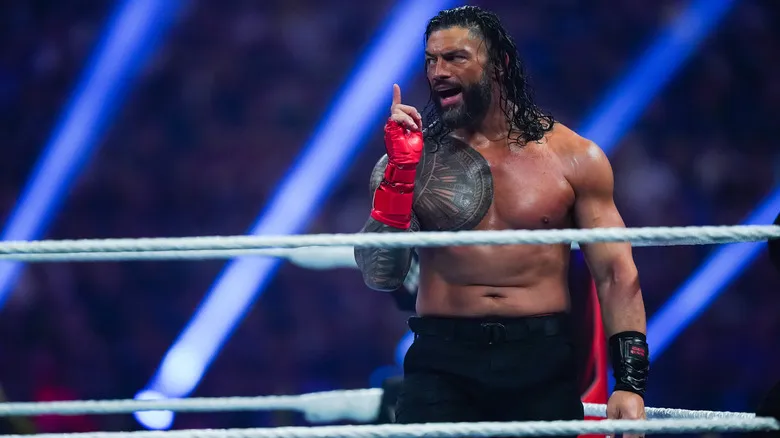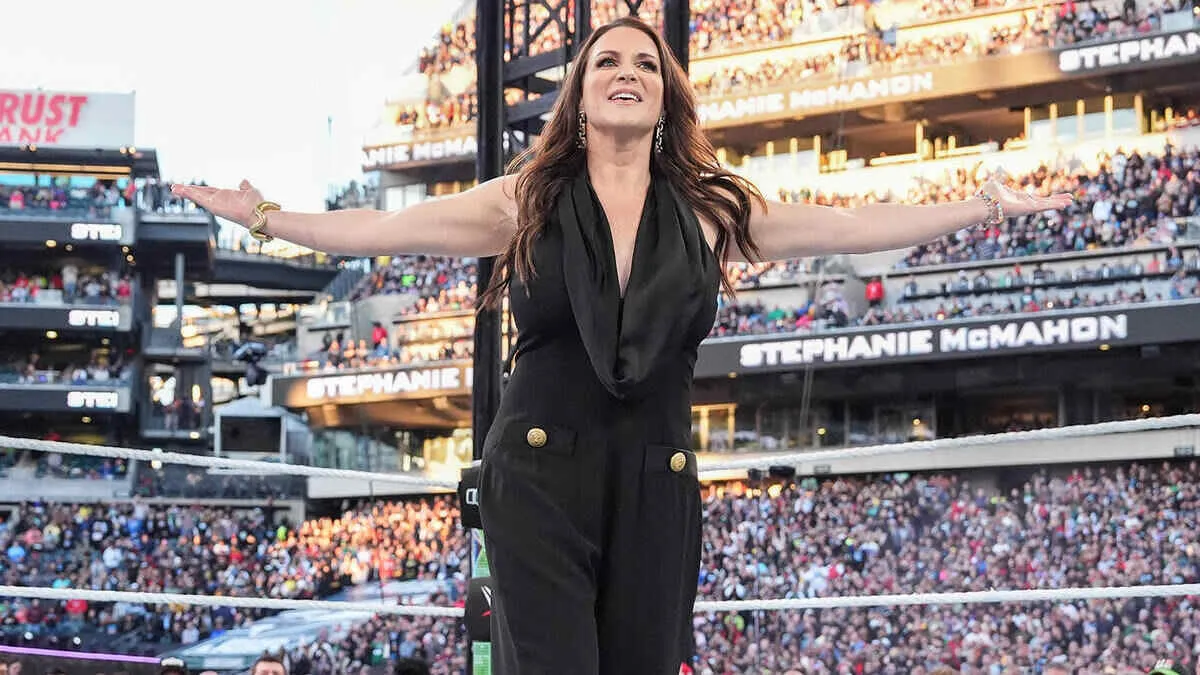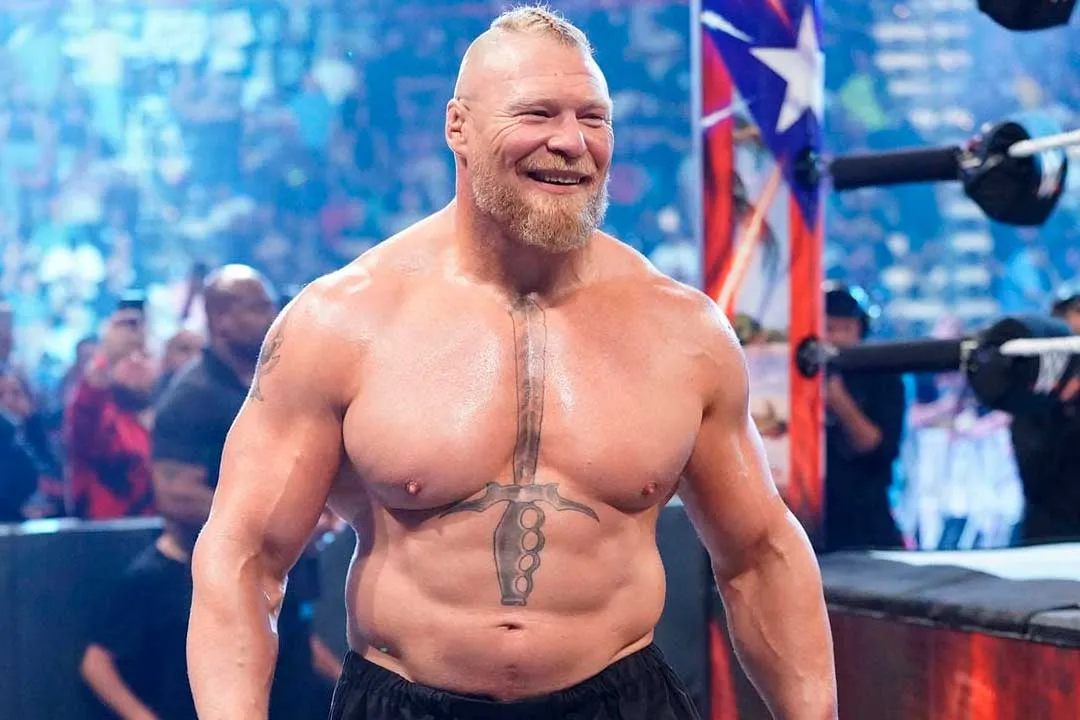

She Inherited His Strength — But Not Even Brock Lesnar Could Prepare Mya for This
The Shadow of a Giant: Mya Lesnar’s Burden and Bravery
In the world of athletics, lineage can be both a blessing and a burden. For Mya Lesnar, daughter of WWE legend and UFC heavyweight champion Brock Lesnar, expectations come not just from the sport itself but from the giant shadow cast by her father’s almost mythic strength. Known for her own promising prowess in shot put, the young athlete has long captivated fans intrigued by the prospect of greatness running in the bloodline. But on her debut at the Diamond League, Mya faced a reality check — one that no legacy, no matter how powerful, could shield her from.
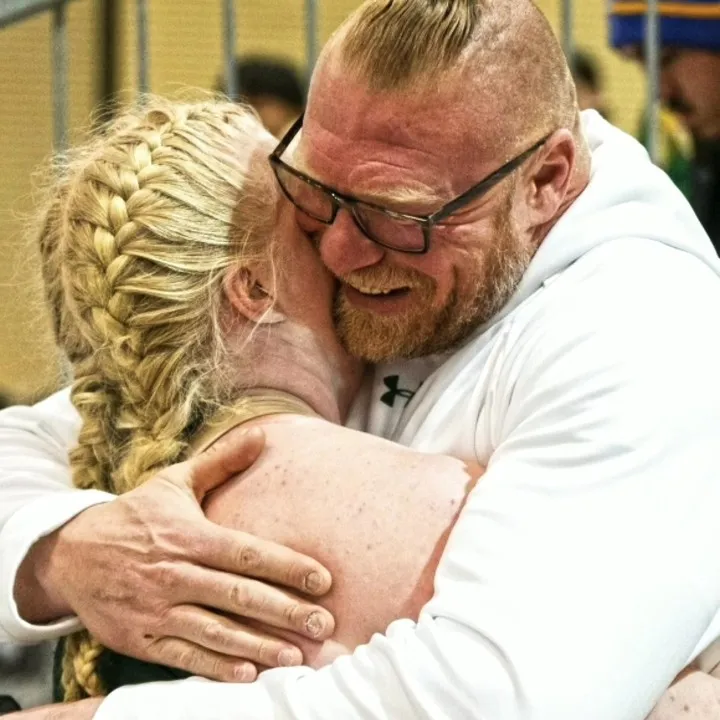
Mya Lesnar didn’t just arrive at the Diamond League as an anonymous newcomer. She stepped into the arena carrying the weight of being the daughter of a man who redefined physical dominance in professional wrestling and mixed martial arts. With her blonde hair tied back, her shoulders broad and braced, and the glare of global attention on her every move, the 21-year-old was more than a debutante — she was a symbol of inherited strength.
Yet, when the final rankings were tallied, Mya’s name was not among the top three. She missed the podium. And the world noticed.
“Wasn’t the performance I had hoped for”: Mya Speaks Out
After the event, Mya took to social media to share her disappointment. In a short but candid statement, she admitted:
“Wasn’t the performance I had hoped for. But I’ll be back. Stronger, smarter, better.”
This wasn’t just a loss on paper — it was a moment of reckoning for a young woman still finding her place, her rhythm, and her own identity outside the narrative written by others. It was also a powerful moment of authenticity, a crack in the armor that made Mya feel less like a Lesnar legacy and more like a human — fallible, emotional, and real.
That vulnerability didn’t signal weakness. If anything, it marked the birth of Mya Lesnar’s own story, separate from her father’s towering legacy. Because to understand what this moment truly meant, we have to understand the journey she’s on.
From the Octagon to the Circle: A Different Kind of Arena
While Brock Lesnar was known for smashing opponents inside the octagon, Mya Lesnar found her calling in a very different kind of arena — the shot put ring. At Colorado State University, she quickly became one of the most talked-about collegiate athletes in field events. Her explosive strength, natural power, and disciplined work ethic — perhaps inherited, but definitely honed — made her a standout.
But talent in the NCAA is not the same as success on the world stage. The Diamond League, often considered the elite circuit of track and field, features the world’s most seasoned athletes — Olympic medalists, world record holders, and seasoned professionals. For Mya, it was more than a debut; it was a trial by fire.
The results were not what she had dreamed of. But her reaction revealed far more than the scoreboard ever could.
A Name That Opens Doors — And Eyes
The name Lesnar carries clout. Whether you’re a fan of WWE, UFC, or mainstream sports, it’s a name synonymous with dominance, violence, and championship gold. So when a Lesnar steps into a new arena, the spotlight doesn’t just follow — it blinds. For Mya, that spotlight has been both an invitation and a challenge.
Journalists were quick to label her “Brock Lesnar’s daughter,” and even in track and field coverage, her name was often accompanied by references to her father’s fame. That’s understandable — but it also underscores the constant pressure she faces to live up to an ideal she didn’t ask to be measured against.
She didn’t choose to become an icon overnight. She chose the grit of early mornings, the pain of sore muscles, and the discipline of repetition that defines every serious athlete. That’s what makes her admission after the Diamond League so compelling. It wasn’t a media statement. It was a glimpse into the mind of a young woman grappling with expectation — and still choosing to fight.
Mental Strength in the Face of Loss
The term “strength” gets thrown around a lot — especially in sports. But mental strength often goes unnoticed. In that sense, Mya Lesnar showcased something even her father, at the peak of his UFC reign, rarely had to show: humility in defeat.
Where Brock Lesnar bulldozed through opponents, often saying little and revealing less, Mya offered something far more difficult: transparency. By admitting that she fell short, she allowed herself — and others — the space to grow. In a culture obsessed with perfection and podiums, her honest self-reflection was quietly revolutionary.
Failure is a crucible. And this moment might very well become the turning point in Mya’s career — not because she won, but because she didn’t.
Redefining What It Means to Be a Lesnar
To understand the magnitude of Mya’s moment, one has to appreciate how rare it is for second-generation athletes to step out of their parents’ shadows. For every Kobe Bryant who surpassed Joe “Jellybean” Bryant, or for every Steph Curry who outshone Dell Curry, there are countless others who wilt under the weight of inherited expectation.
Mya Lesnar may have inherited her father’s physical gifts, but the path she’s carving is uniquely her own. She doesn’t roar into cameras. She doesn’t flex for attention. She works, quietly, methodically, with a discipline that whispers louder than any wrestling promo ever could.
She’s not trying to become the next Brock Lesnar. She’s trying to become the first Mya Lesnar.
And if this first major stumble in the Diamond League has taught us anything, it’s that her journey will not be defined by the medals she wins — but by the character she reveals in moments like this.
The Weight of Legacy — And the Freedom Beyond It
There is a moment in every young athlete’s life when they realize they are not invincible. For Mya, that moment may have come sooner than expected. But it’s also the exact moment that transforms athletes into competitors — and competitors into champions.
What separates champions from merely talented individuals isn’t flawless performance — it’s resilience after failure. Mya has already shown that she understands this. Her post-event message wasn’t just a note to fans — it was a declaration of intent. She’s not done. Not even close.
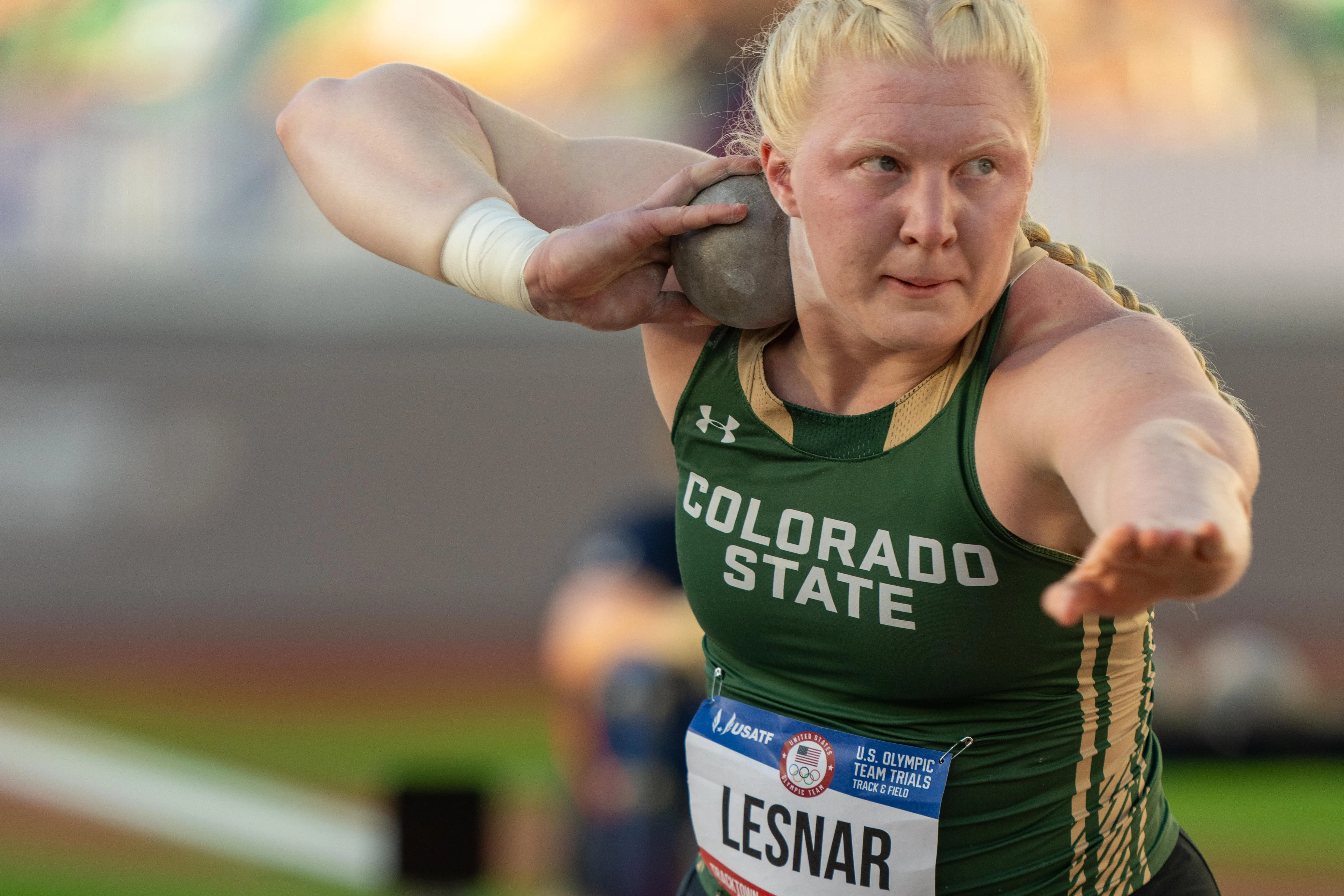
The Lesnar name may have opened doors. But Mya is now walking through them on her own terms — sometimes stumbling, but always moving forward. That, perhaps more than anything, is what will define her legacy.
A New Chapter Begins
As the Diamond League continues, Mya Lesnar will have more chances to prove herself. But in a way, she’s already passed a far more difficult test: facing disappointment with dignity, and refusing to let it define her.
There is something deeply powerful about watching a young athlete learn how to lose — especially one with a last name that is so often associated with brute-force victories. Mya Lesnar may have missed the podium, but in doing so, she found something more lasting: the beginning of her true identity as an athlete.
So while the cameras may have looked away when the medals were handed out, make no mistake: the story of Mya Lesnar is just beginning. And if this first setback is any indication, the chapters to come will not just be about power — but about perseverance, purpose, and ultimately, pride earned the hard way.
After all, she inherited his strength — but she’s discovering her own way to wield it.
And not even Brock Lesnar could prepare her for that.








